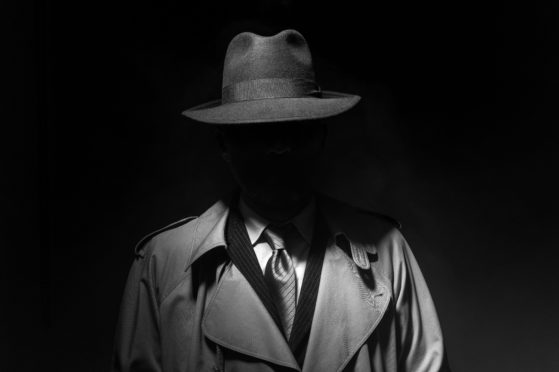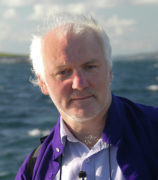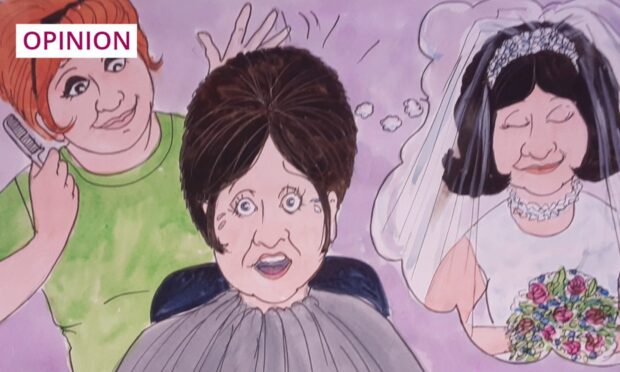I don’t know how often Aristotle and the Mafia are mentioned in the same sentence, though they ought to be.
Not because the great Greek philosopher was a member of the Mafioso, but because he famously said ‘Nature abhors a vacuum’, which explains not only the existence of the Cosa Nostra but that dip in my garden which fills up with rain and snow and leaves and rubbish depending on the time of the year.
Aristotle was speaking of physics, though his postulate applies equally well to our daily lives. Who of us, with time to spare these days, does not fill the vacuum left by not being able to go out to work or to the Global Energy Stadium in Dingwall to watch Ross County play football, with other material stuff? Watching more telly, reading, doing press-ups, learning the bagpipes, playing Ludo, and worrying over the latest news about the pandemic, as if we’re not anxious enough already? I have no doubt that Pascal was right when he wrote, “All of humanity’s problems stem from man’s inability to sit quietly in a room alone.”
The current distress over social distancing may say as much about growth and urbanisation as anything. I realise that poverty and overcrowding was rife in previous centuries, and that even today in large swathes of the world social distancing is a luxury that millions don’t have, whether in the slums of India or in the shanty towns of South America or the refugee camps in Europe. So let us accept the privilege of space as a blessing. As Terry Waite has put it, you are not stuck at home, you’re safe at home. It’s what do with that space, as Aristotle alludes to.
Aristotle’s dictum has a much wider application, of course. For there is no doubt that history itself verifies that where there is a democratic vacuum it is filled by one populist ideology or the other. The unfairness of the way Germany was treated after World War One birthed a terrible sense of resentment and injustice which festered through the 1920s until the Nazis stepped in to fill the void, promising pride where there was shame, and victory where there was defeat.
Much the same pattern has emerged in our times with the rise of populism throughout the world – the mining communities in Britain which were ravaged by Thatcherism have long felt a sense of betrayal and abandonment as have the red-belt states in America which catapulted Donald Trump (and here the whole fankle of Tory MPs in previously-unassailable Labour territory) to power. They literally stepped into the gap.
Which is where the Mafia enter, centre-stage. It’s not that one rainy morning in Sicily Vito Corleone woke up and thought ‘Ah now – wouldn’t it be a good idea to start a self-help group? What shall I call it? Ah – the Mafia!’ No – the Mafia rose out of the insecurity and deprivation that millions of poor people in southern Italy and in Sicily felt. On the one hand, you had a few wealthy people who owned all the land and resources, and on the other the vast majority of people who had no rights and were still feudal tenants at the beck and whim of often distant and brutal landlords. The Mafia offered them a (false and violent) way out of that deprivation.
The Highlands anybody? Of course that was the same situation here, give or take a benevolent clan chief or two, and when the traditional clan system broke down after Culloden the consequences are all too familiar to us: hundreds of thousands cleared from the land, both overseas and down to the cities, the anguish of it all magnified by the terrible potato famines of the mid-19th century.
So why no Highland Mafia? Well, a couple of brief reasons: firstly, the role of the church (and no snide remarks about the elders being the mafia please), in particular the emergence of ‘The Men’ at the time of the Disruption in 1843. These laymen, who took their sense of justice and fairness from the Bible, became a vehicle for the rural poor and the disenfranchised to raise their voices and make their pleas to both heaven and earth.
Of course there was a degree of fatalism connected with that, in the sense that if all your hope is in heaven there is no point in struggling on earth, but there were enough who believed in righteousness here on earth (Thy will be done on earth) to give a robust political and economic dimension to their theology. Hence the other group that filled the vacuum – the Land League, counting among its leaders the Argyll-born Reverend Donald MacCallum who served in Morvern, Tiree, Skye and Lewis, demanding – and ultimately achieving through group strength – basic rights such as security of tenure.
The current Covid 19 has demonstrated one thing: that when the vacuum appears, local people working together as a community can fill it better than any Mafia. The old commandment to love thy neighbour as thyself has become a privilege as well as a necessity.
Angus Peter Campbell is an award-winning writer and actor from South Uist











